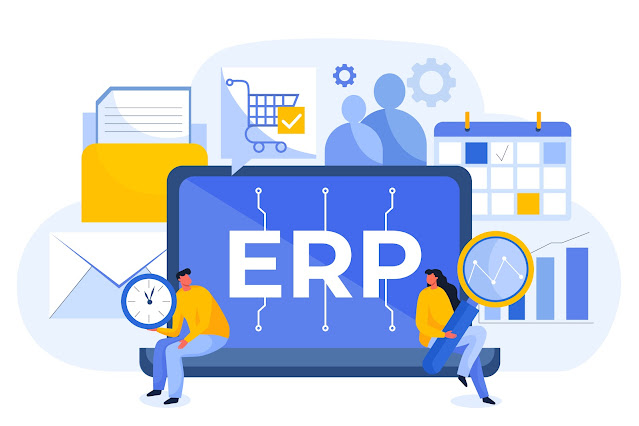What Are the Considerations for AS400 ERP Cloud?
Companies are continuously seeking methods to increase efficiency, streamline operations, and establish a distinct competitive edge in today's shifting business market. The field of enterprise resource planning ERP solutions is critical to attaining these objectives. The IBM AS400 ERP is one such ERP solution that has received notoriety for its powerful features.
What is IBM AS400 ERP?
The IBM AS400, alternatively recognized as the IBM iSeries or i5, represents a multifaceted and dependable platform that presents an all-encompassing AS400 ERP resolution. This platform garners acclaim for its extensibility, impregnability, and enduringness, rendering it the favored preference for numerous enterprises spanning diverse sectors.
The AS400 ERP proffers a consolidated methodology for overseeing pivotal corporate facets, encompassing fiscal management, stock administration, workforce management, and beyond. Its modular framework grants enterprises the ability to fine-tune the system to their particular requisites, ensuring a smooth assimilation into existing operational sequences.
What are the Benefits of AS400 ERP?
The adoption of IBM AS400 ERP comes with several notable advantages. One of the standout features is its exceptional performance and reliability. The system is designed to handle large volumes of data and complex business processes, ensuring uninterrupted operations. Additionally, AS400 ERP offers top-tier security, protecting sensitive information from external threats.
This elevated standard of security assumes particular significance in sectors where safeguarding data integrity takes precedence, notably within domains like healthcare and finance.
Furthermore, the platform's expansiveness permits enterprises to expand their operations with minimal disturbance. The AS400 ERP is ideally tailored for entities of diverse dimensions, catering to the requirements of small-scale ventures as well as large-scale corporate entities.
Its adaptable structure empowers organizations to tailor the system in accordance with their precise prerequisites, guaranteeing optimal returns on their ERP investments.
Which Industries using AS400 ERP?
IBM AS/400 ERP is versatile and can be found in various industries, each benefiting from its unique features.
Manufacturing: Manufacturers rely on AS400 ERP to streamline production, manage inventory, and improve supply chain management.
Retail: Retailers use AS400 ERP to manage inventory, track sales, and enhance customer experiences through better stock availability.
Finance: Financial institutions trust AS400 ERP for its robust security measures and seamless transaction processing.
Healthcare: The healthcare industry values AS400 ERP for its ability to handle sensitive patient data securely and efficiently.
Distribution: Distributors rely on AS400 ERP to manage their supply chains and keep track of inventory and orders.
Education: Educational institutions use AS400 ERP to manage student records, admissions, and financial data.
What Are the Benefits of Moving AS400 ERP to the Cloud?
Scalability, cost savings, accessibility, automatic updates, data security, disaster recovery, collaboration, analytics, support, reliability, environmental sustainability, mobile capabilities, and compliance assistance are all advantages of moving to an AS400 ERP cloud system. When compared to on-premises solutions, cloud ERP systems provide greater flexibility, ease of access, and expanded capabilities while lowering operating expenses and administrative constraints.
ERP systems, including AS/400 ERP cloud, require regular upgrades to stay relevant and competitive. Upgrades offer the following benefits:
Improved Performance: Upgrades often include performance enhancements that lead to faster processing and improved user experiences.
Security Enhancements: Security threats evolve over time, and upgrades help in maintaining robust data protection.
Feature Expansion: Upgrades introduce new features and functionalities, enabling organizations to adapt to changing business needs.
Compliance: Upgrades ensure that the ERP system complies with the latest regulations and standards in various industries.
How to Choose the Right ERP Consultant
Selecting the right AS400 consultant is a crucial step in the ERP implementation or upgrade process. Consider the following factors:
Experience: Look for consultants with a proven track record of successful ERP projects in your industry.
Expertise: Ensure that the consultant has expertise in the specific ERP system you are using or planning to implement.
Communication Skills: Effective communication is vital for a successful ERP project. The consultant should be able to understand your business needs and convey technical information clearly.
References: Ask for and check references from previous clients to gauge the consultant's reputation and reliability.
Cost and Budget: Discuss pricing and ensure that it aligns with your budget constraints.
conclusion
IBM AS400 ERP is a robust solution that provides various benefits, making it suitable for a wide range of industries. Regular ERP upgrades ensure that your system remains up-to-date and capable of meeting your evolving business needs. When selecting an ERP consultant, prioritize experience, expertise, communication skills, and references to ensure a successful ERP implementation or upgrade.


Comments
Post a Comment